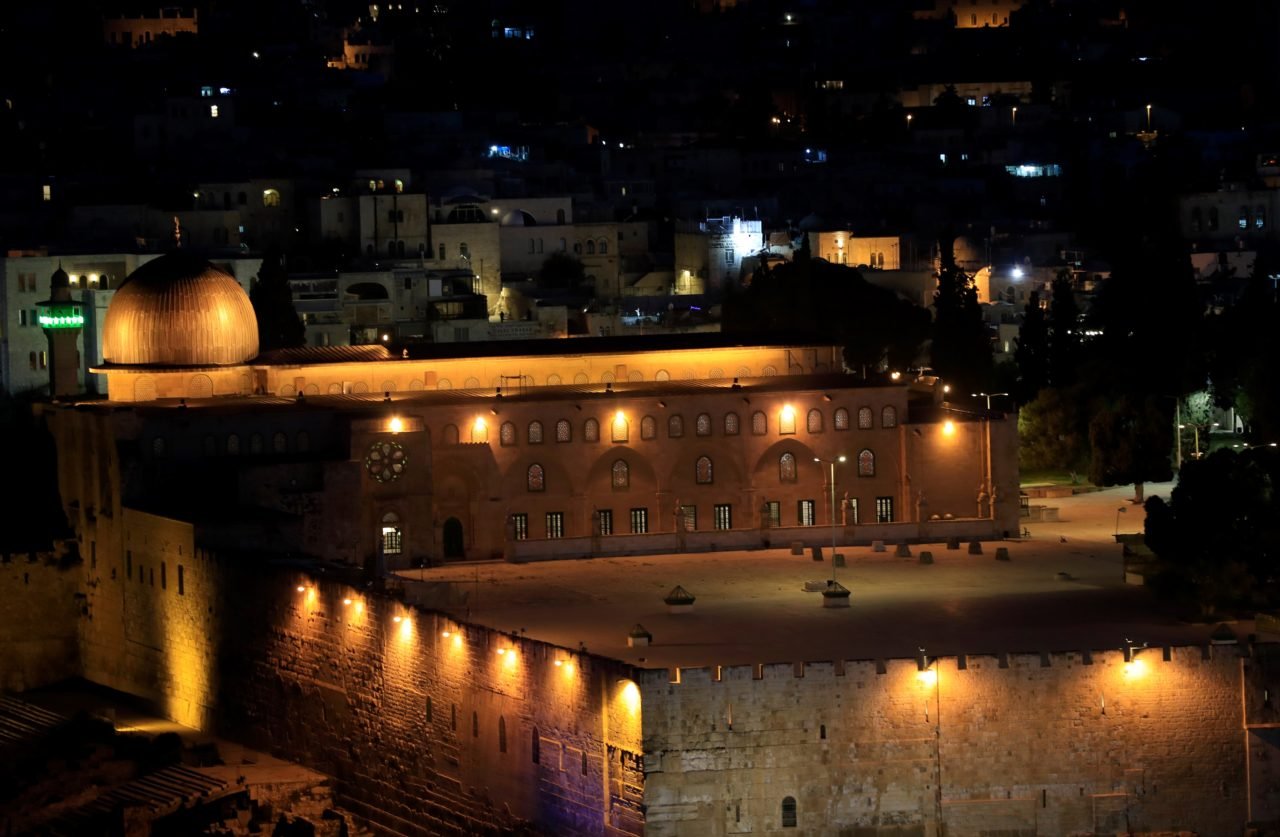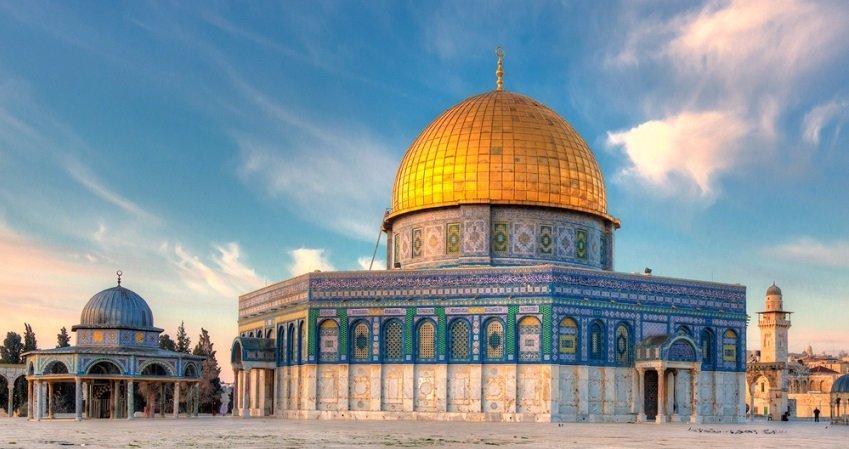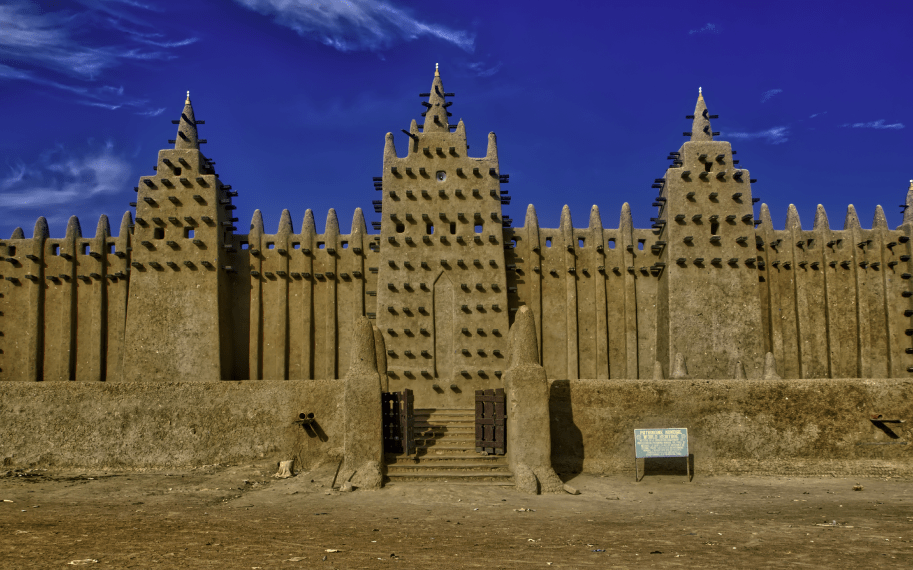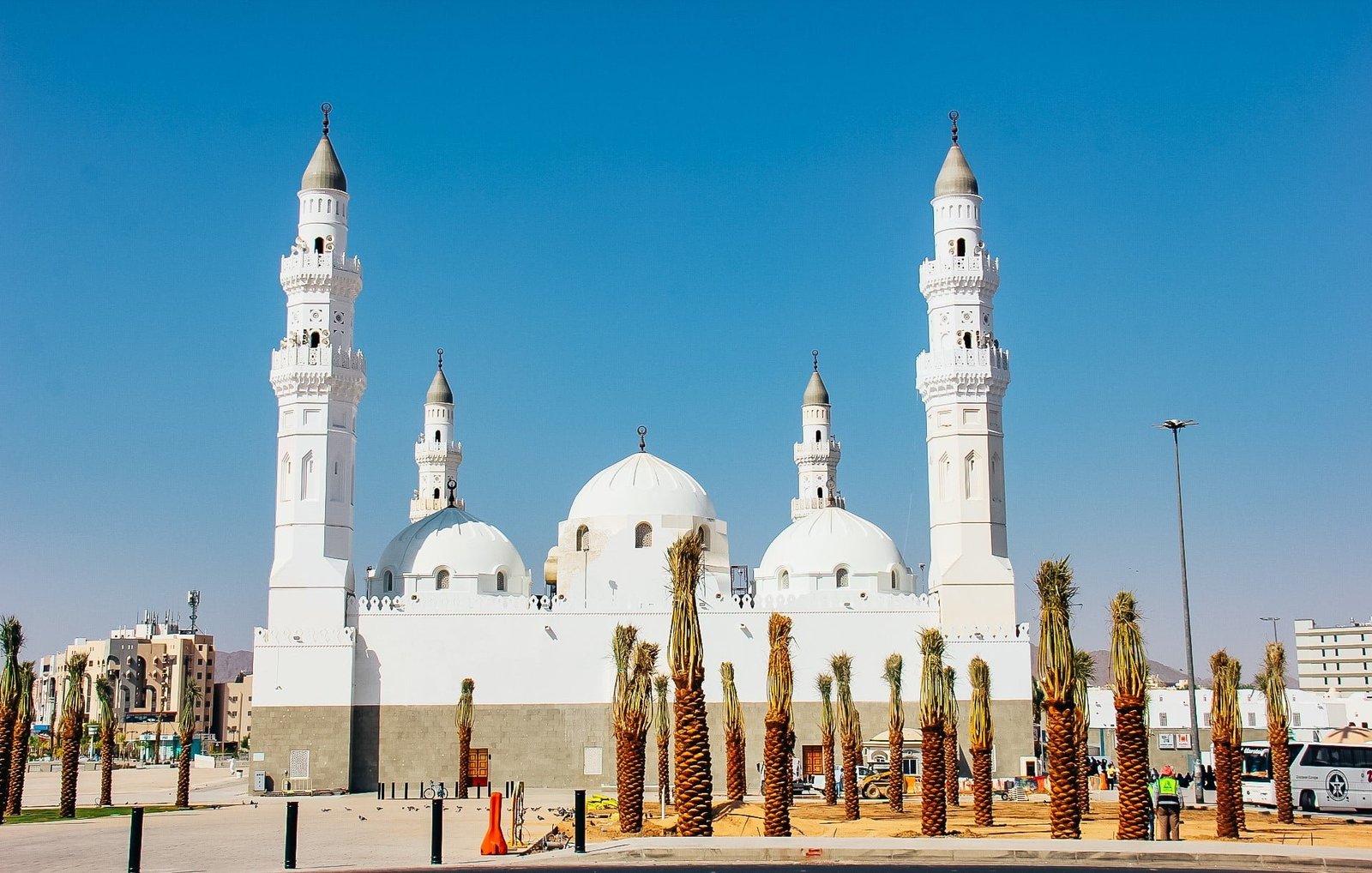
Each year, more than 2 million Muslims from around the world embark on a journey to fulfill their religious obligation known as Hajj. This mandatory pilgrimage must be carried out at least once in a lifetime by all physically and financially capable adult Muslims. While the focal point of this sacred journey is Mecca, the holiest city for Muslims, many also aspire to visit other equally revered landmarks.
Currently, travel to these holy sites has been significantly impacted by the ongoing coronavirus pandemic. However, the cultural and spiritual significance of these places continues to be a source of admiration for Muslims and non-Muslims alike.
Table of Contents
Al-Masjid Al-Ḥarām (The Sacred Mosque), Mecca
Al-Masjid Al-Ḥarām is a mosque that encircles the Kaaba in Mecca, situated in the Hejazi region of Saudi Arabia. It is the largest mosque globally, covering an impressive area of 356,800 square meters. This grand mosque serves as the primary setting for the annual Hajj and Umrah pilgrimages, which take place in the Islamic month of Dhu al-Hijjah and at other times throughout the year.

Al-Masjid an-Nabawī (The Prophet’s Mosque), Medina
Masjid an-Nabawi, located in Medina, Saudi Arabia, is another highly revered site in Islam. Established and constructed by the Prophet Muhammad, it was one of the first mosques built by him. Today, it ranks among the world’s largest mosques. This sacred site is the second holiest in Islam, following the Great Mosque in Mecca. It remains open at all times, welcoming visitors regardless of the date or time. The mosque also serves as the final resting place of Prophet Muhammad (peace be upon him) and his two companions, Abu Bakr and Umar.

Al-Masjid Al-Aqṣā, Jerusalem
Al-Masjid Al-Aqṣā, often referred to as “the Farthest Mosque,” is located in the Old City of Jerusalem. It holds the distinction of being the third holiest site in Islam. During the time of the Prophet Muhammad (peace be upon him), Al-Masjid Al-Aqṣā was the farthest mosque from the Kaaba and was constructed under the guidance of the Prophet. The mosque’s historical and religious significance continues to make it an essential pilgrimage site.

Imam Ali, Iraq
Imam Ali, situated in Najaf, Iraq, is the third holiest place for Shi’a Muslims. This mosque contains the tomb of Ali, who was not only a cousin of the Prophet Muhammad but also his brother through the bond of faith. In 977, the mosque was built over Ali’s tomb by the Iranian ruler Daylamite Fannakhosraw Azod ad Dowleh. Najaf holds the distinction of being the third holiest Islamic city globally, following Mecca and Medina.

Masjid Qubbat As-Sakhrah, Jerusalem
Masjid Qubbat As-Sakhrah, also known as the Dome of the Rock, is located on the Temple Mount in Jerusalem’s Old City. This site is particularly noteworthy for its status as a holy place for Christians, Jews, and Muslims, making it one of the most controversial pieces of real estate globally. The controversy stems from the foundation stone housed within the building, which is the very rock that lies beneath the dome.

Great Mosque of Djenne, Mali
The Great Mosque of Djenne in Mali is a remarkable mud-brick structure, representing an architectural marvel of the Sudano-Sahelian style. Located in the floodplain of the Bani River within the city of Djenne, this mosque has a storied history. Its first construction dates back to the 13th century, with the current structure being built in 1907. Designated as a UNESCO World Heritage site, it stands as one of Africa’s most famous landmarks.

Quba Mosque, Medina
The Quba Mosque is situated on the outskirts of Medina, Saudi Arabia, and holds great significance for Muslims. It was the first mosque built by the Prophet Muhammad himself upon his arrival in Medina after emigrating from Mecca. As a result, this mosque is considered a highly sacred place for Muslims, and offering prayers here is regarded as a deeply virtuous act.

In conclusion, these holy sites hold immense importance for the Islamic faith and serve as sources of spiritual guidance and inspiration for millions of Muslims. While the ongoing pandemic has impacted travel, the cultural and religious significance of these places continues to be celebrated and revered by people of all backgrounds.
FAQs
Q1: What is the significance of Al-Masjid Al-Ḥarām (The Sacred Mosque) in Mecca?
A1: Al-Masjid Al-Ḥarām is the largest mosque globally and encircles the Kaaba in Mecca, making it the primary setting for the annual Hajj and Umrah pilgrimages. It is one of the holiest sites in Islam.
Q2: Which mosque is considered the second holiest site in Islam?
A2: Masjid an-Nabawi (The Prophet’s Mosque) in Medina, Saudi Arabia, is the second holiest site in Islam, and it is the final resting place of Prophet Muhammad and his two companions.
Q3: Where is Al-Masjid Al-Aqṣā located, and why is it significant?
A3: Al-Masjid Al-Aqṣā is situated in the Old City of Jerusalem and is the third holiest site in Islam. It is historically significant due to its construction under the guidance of the Prophet Muhammad.
Q4: Why is Imam Ali in Najaf, Iraq, important to Shi’a Muslims?
A4: Imam Ali is the third holiest site for Shi’a Muslims and contains the tomb of Ali, who was a cousin and brother in faith to Prophet Muhammad.
Q5: What makes Masjid Qubbat As-Sakhrah in Jerusalem controversial?
A5: Masjid Qubbat As-Sakhrah, also known as the Dome of the Rock, is located on the Temple Mount in Jerusalem. It is controversial due to its significance as a holy place for Christians, Jews, and Muslims.
Q6: Tell me more about the Great Mosque of Djenne in Mali.
A6: The Great Mosque of Djenne is a mud-brick structure, representing an architectural marvel of the Sudano-Sahelian style. It is located in the city of Djenne and is a UNESCO World Heritage site.
Q7: What is the historical importance of the Quba Mosque in Medina?
A7: The Quba Mosque, located on the outskirts of Medina, is considered highly sacred as it was the first mosque built by the Prophet Muhammad upon his arrival in Medina. Offering prayers at this mosque is regarded as a virtuous act.
Read Also
What Breaks Wudu? 9 Key Events Every Muslim Should Know
Women’s Rights in Islam – A Comprehensive Overview
Online Quran Memorization Course – Book Your Free Trial Class
How to Memorize the Quran Online Fast & Easy?
How to Choose the Right Quran Teacher Online
Why is It Important To Learn Quran Tafsir?
Common Mistakes To Avoid When Learning The Quran
The Role of the Quran in Spiritual Development
Online Quranic Arabic Courses for Beginners

